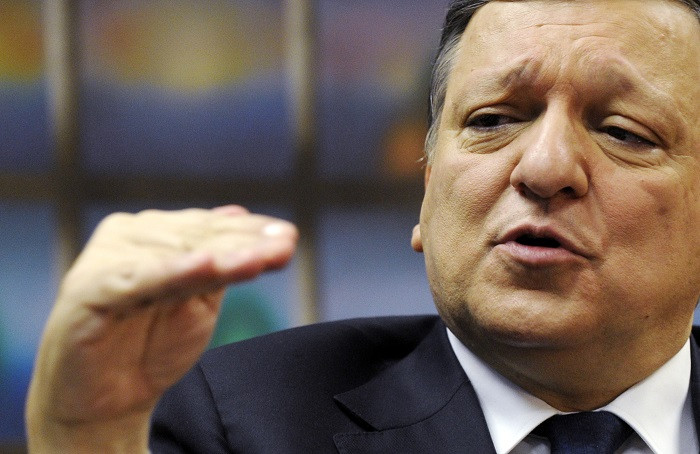Independent Scotland Would Have Great Difficulty Joining EU, Warns Barroso

An independent Scotland would find it "extremely difficult, if not impossible" to join the EU, European Commission President José Manuel Barroso has warned.
Barroso said that if Scotland votes to leave the UK in its independence referendum scheduled for 18 September, the Scottish government will have to apply independently for membership and obtain approval from all current EU members.
"Of course it will be extremely difficult to get the approval of all the other member states to have a new member coming from one member state," he said in an interview on the BBC's Andrew Marr Show.
"I believe it's going to be extremely difficult, if not impossible - a new member state coming out of one of our countries getting the agreement of the others."
Of course it will be extremely difficult to get the approval of all the other member states to have a new member coming from one member state.
Barroso said, however, that the future of Scotland lies in the hands of the Scottish people and he does not want to interfere in the decision-making process surrounding independence.
Scottish Minister Alex Salmond dismissed Barroso's comments as "nonsense" and the Scottish government maintained that it would negotiate a transition into EU membership if it leaves the UK.
In its white paper on independence, launched in November, the Scottish government said it would seek to gain EU membership through Article 48 of the Treaty of the European Union.
What is at stake if Scotland votes for independence on 18 September?
Currency
UK Chancellor George Osborne warned that Scotland will not be able to keep the pound if it votes in favour of independence. In a recent speech in Edinburgh backed by Labour and the Liberal Democrats, he said: "The pound isn't an asset to be divided up between two countries after a break-up, like a CD collection. If Scotland walks away from the UK, it walks away from the UK pound."
Salmond criticised UK government ministers of "bullying" Scotland over the issue of independence, and described Osborne's comments on withdrawing the currency union as "ill though-out and misinformed".
Business
According to a UK government paper that analyses the potential impact of an independent Scotland, splitting the UK market by introducing a border would introduce a barrier to the free flow of goods, capital and labour, which would have an adverse impact on business, workers and consumers.
Liberal Democrat business secretary Vince Cable also recently said that the Edinburgh-based Royal Bank of Scotland (RBS) would inevitably relocate to London if Scotland votes to break away from the UK. Such a move would put 3,000 jobs at risk at the Gogarburn headquarters of the bailed-out bank.
However, a spokesman for RBS said it is politically neutral and would respond to whatever voters and governments decide.
Defence
According to the UK government, a vote for secession from the UK would have "profound" consequences for Scotland's national security because it would leave existing arrangements and have to establish its own defence infrastructure and policy.
The Scottish government, however, suggested that it would remain part of a wider "defence union" as part of Nato. Scottish government minister Keith Brown also said that the number of defence jobs in Scotland would rise from around 11,000 to 15,000.
"We believe that's the optimum number for the kind of things which we want to see a defence force in Scotland carry out - not illegal wars," Brown told BBC Scotland.
© Copyright IBTimes 2025. All rights reserved.





















